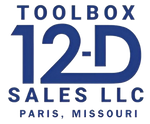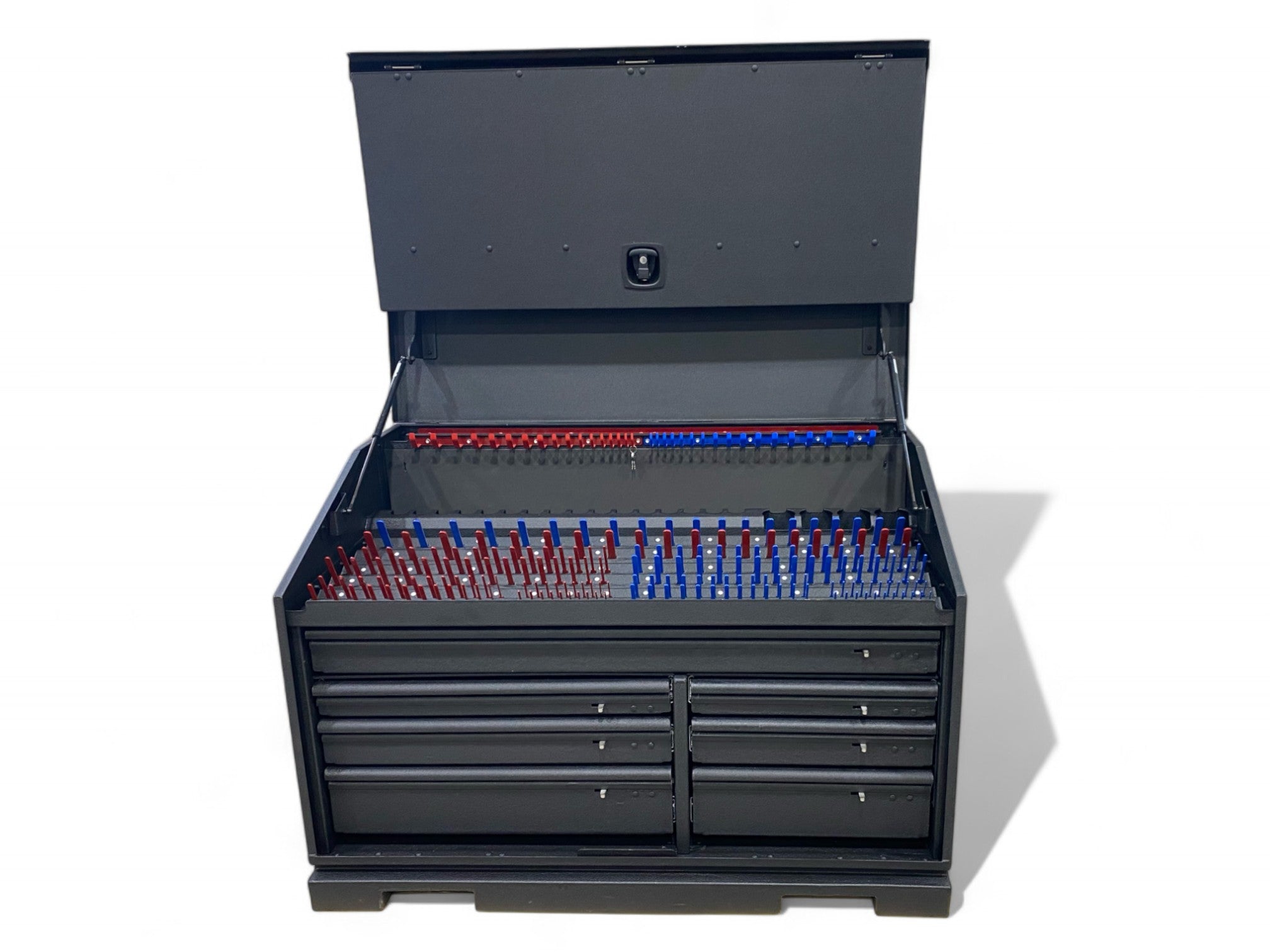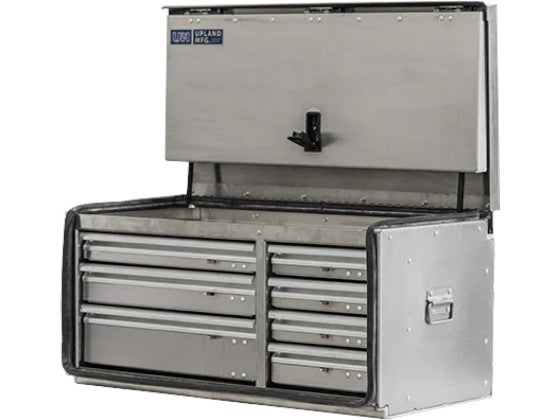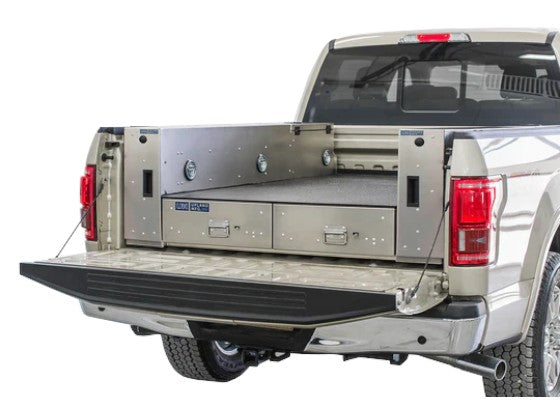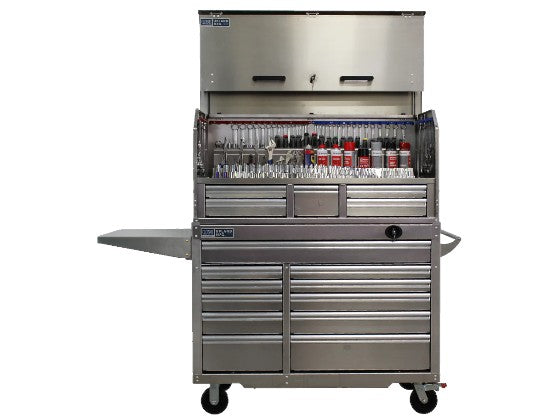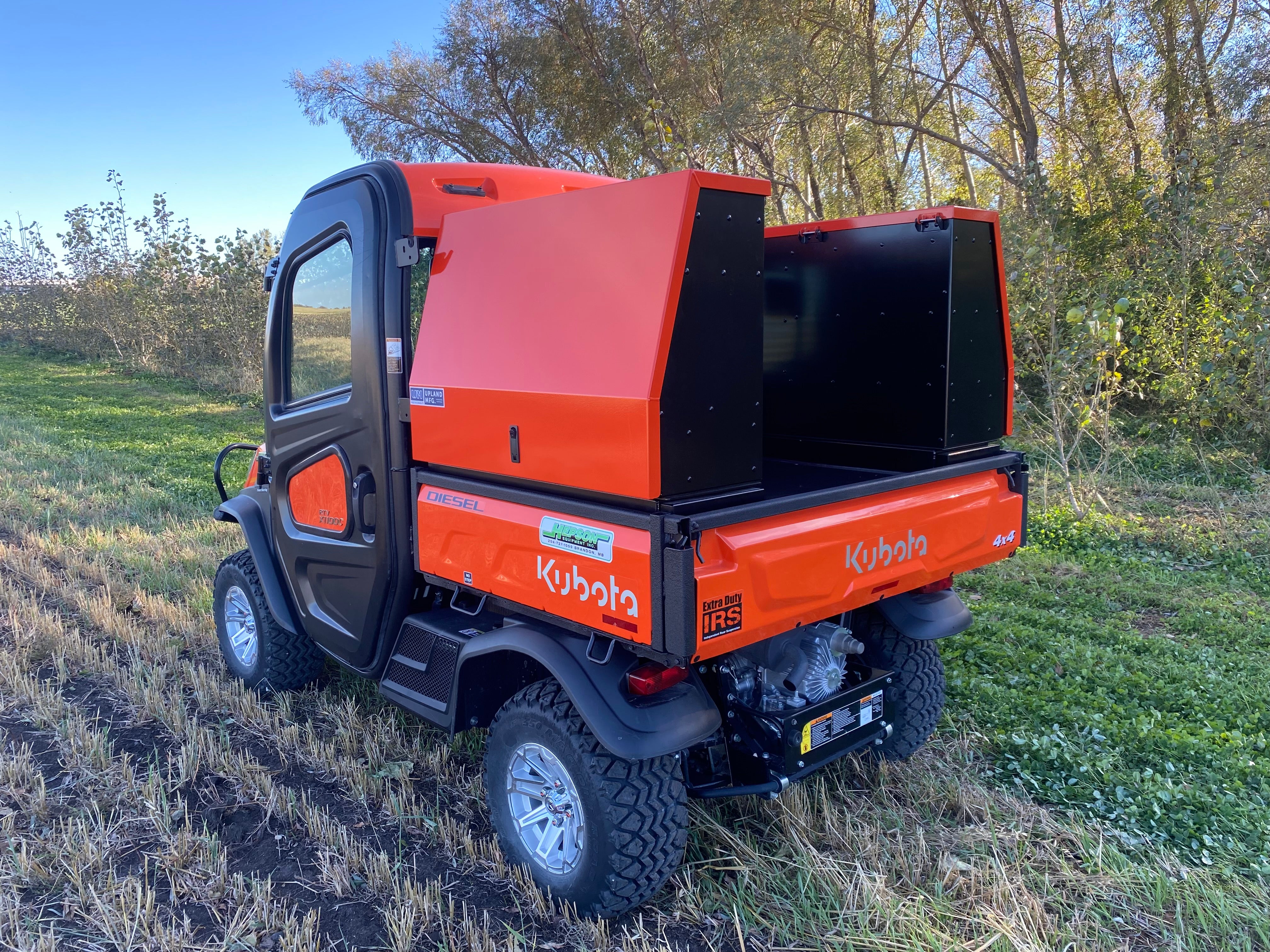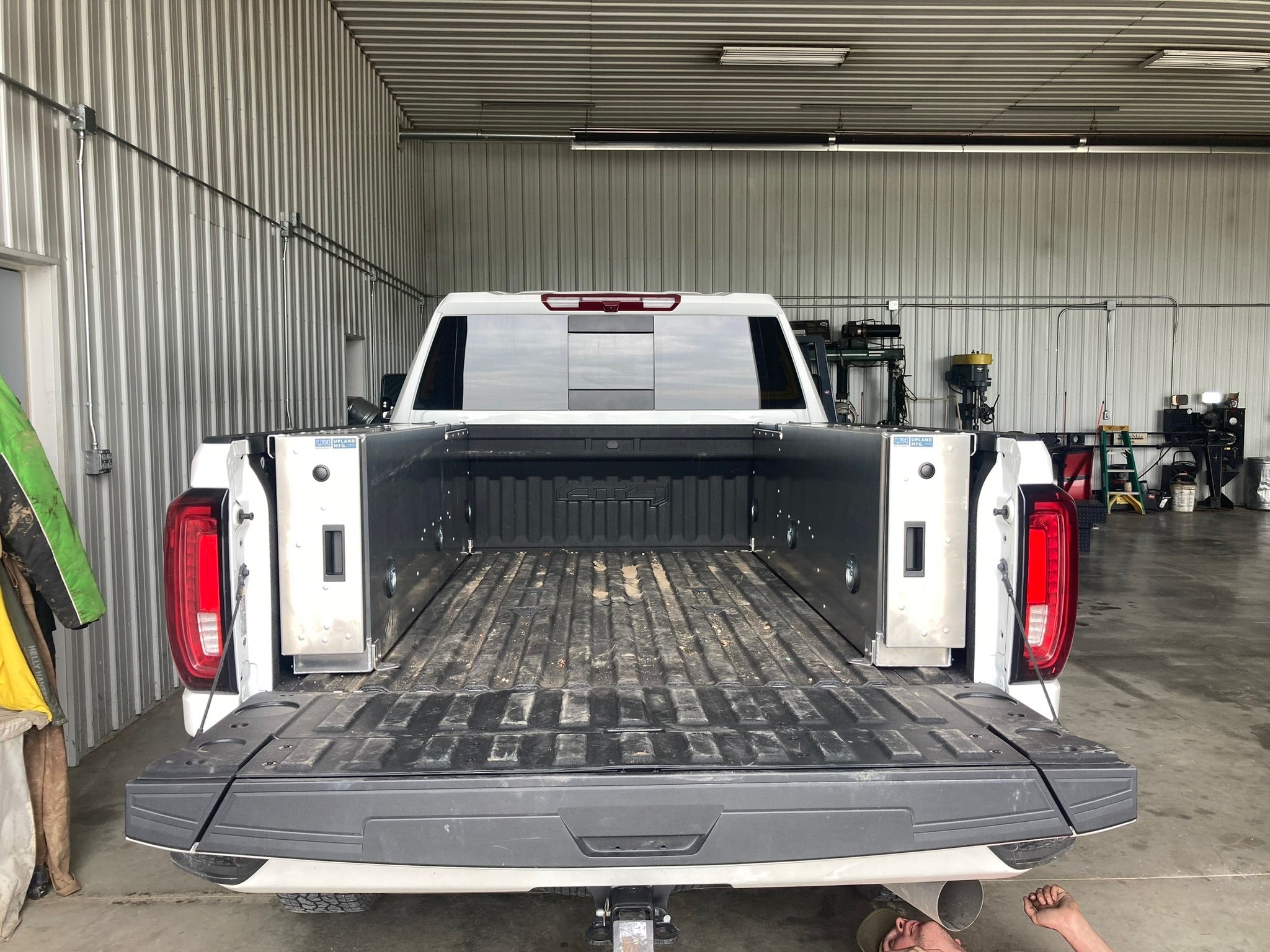Selecting the right tool box material is crucial for both functionality and longevity. Whether you’re a DIY enthusiast or a professional tradesperson, the choice between plastic and aluminum tool boxes can greatly impact durability, cost, and convenience. This guide will explore the benefits and drawbacks of each material to help you make an informed choice. Along the way, we’ll highlight some premium options from 12-D Toolbox Sales, renowned for their high-quality, weatherproof truck bed toolboxes.
Overview of Plastic and Aluminum Tool Boxes
Plastic Tool Boxes: Lightweight and Budget-Friendly
Plastic tool boxes, especially those made from polypropylene, are popular due to their light weight and affordability. They’re a top choice for homeowners who need a box for light-duty storage. A big advantage is that plastic is rust-proof, making it a great choice for humid areas. Poly plastic boxes offer durability and cost-effectiveness, appealing to those seeking a budget-friendly option.
Aluminum Tool Boxes: Strong and Weather-Resistant
Aluminum offers a blend of durability and portability, making it ideal for professional-grade tool boxes. Unlike steel, aluminum is naturally rust-resistant, providing longevity without the weight. Many professionals prefer aluminum for its ability to handle rugged conditions while remaining lightweight. Premium aluminum boxes, like those from 12-D Toolbox Sales, deliver high-quality construction suited for any work environment.
Durability Comparison
Plastic: Practical for Light-Duty Use
While plastic is lightweight and rust-proof, it’s less durable under heavy loads or extreme temperatures. Cold weather can make plastic brittle, and prolonged exposure to heat may cause warping. Therefore, plastic is generally better for indoor environments or as a secondary tool storage option for smaller tools.
Aluminum: Built to Withstand Tough Conditions
Aluminum is renowned for its durability, resisting both rust and structural damage. It’s perfect for outdoor or mobile tool storage, maintaining its integrity in harsh conditions. Professionals appreciate aluminum boxes for their robustness and reliability on the job. 12-D’s aluminum truck bed boxes, designed with reinforced lids, secure locks, and weatherproof seals, keep tools safe from moisture, heat, and impact.
Cost Analysis
Plastic Tool Boxes: Economical Choice for Budget-Conscious Users
Plastic tool boxes are more affordable than aluminum options, making them an accessible choice for those with a tight budget. They’re great for light-duty tasks or occasional use, such as household projects. However, their lower durability may mean more frequent replacements, depending on usage.
Aluminum Tool Boxes: Higher Initial Investment, Long-Term Value
Although aluminum tool boxes have a higher upfront cost, they offer better long-term value due to their durability and resistance to corrosion. For frequent users or professionals, investing in aluminum can save money over time by reducing the need for replacements. For example, 12-D’s aluminum tool boxes provide exceptional value for those seeking longevity and high performance in rough environments.
Convenience and Portability
Weight Factor: Plastic vs. Aluminum
Plastic tool boxes are known for being exceptionally lightweight, making them easy to handle. This makes plastic an ideal choice for users who frequently transport their tools. Aluminum, while slightly heavier, strikes a balance between weight and strength, offering durability without the excessive bulk of steel. 12-D’s aluminum truck boxes combine sturdiness and portability, ideal for those who need reliable tool storage on the go.
User-Friendly Design and Features
Plastic tool boxes often feature simple latches and compartments, which are effective for basic storage but lack advanced organizational options. Aluminum boxes, however, often come with customizable compartments, trays, and secure locking mechanisms, making them perfect for professional use. 12-D’s truck bed tool boxes offer convenient features like gas springs and heavy-duty handles, making them easy to access and carry in any work setting.
Environmental Resilience and Maintenance
Plastic: Low Maintenance but Limited Weather Resistance
Plastic tool boxes require minimal maintenance since they are naturally rust-proof. However, they may degrade under prolonged UV exposure and are susceptible to structural weakening in extreme temperatures. For light outdoor use, plastic remains a viable choice, but it’s generally less suited for constant exposure to harsh elements.
Aluminum: Durable and Resilient to Outdoor Elements
Aluminum is designed to withstand outdoor conditions, making it highly resistant to rust and perfect for truck bed storage or job sites. Unlike plastic, aluminum maintains its structural integrity under UV exposure and fluctuating temperatures. 12-D’s weatherproof aluminum boxes, built with stainless steel hinges and secure seals, protect tools from moisture, dust, and corrosion in any climate.
Customization and Accessibility Options
Plastic: Basic Storage with Limited Customization
Plastic tool boxes are generally straightforward in design and lack advanced customization options. They’re great for simple tool organization but don’t offer many features for detailed tool arrangements. Plastic’s affordability translates to a simpler design, which may not meet the needs of users who require specific organizational features.
Aluminum: Highly Customizable for Professional Use
Aluminum tool boxes provide flexibility, with options for trays, compartments, and secure locking systems. For professionals, aluminum boxes offer enhanced organization and are highly adaptable to unique storage needs. 12-D Toolbox Sales offers customizable solutions like the Truck Drawer Toolbox and Pickup Truck Side Boxes, allowing users to arrange tools for optimal accessibility and security.
Best Fit for Different Users
For DIY Enthusiasts: Affordable and Practical Plastic Boxes
Plastic tool boxes are ideal for DIY enthusiasts and casual users seeking a simple, affordable storage solution. They’re lightweight and easy to carry, making them convenient for basic tool storage. Homeowners tackling light projects will find plastic boxes functional and cost-effective.
For Professionals and Tradespeople: Durable and Reliable Aluminum Boxes
For tradespeople, mechanics, and professionals who rely on their tools daily, aluminum tool boxes are highly recommended. Aluminum’s strength, weather resistance, and customization options make it suitable for demanding work environments. Aluminum boxes excel in truck bed storage, offering security and durability on the go. 12-D’s lineup, including the 48” Truck Drawer Toolbox, is tailored to meet the needs of mobile professionals.
Conclusion
Choosing between plastic and aluminum tool boxes ultimately depends on your specific needs, budget, and intended work environment. Plastic boxes are lightweight, rust-proof, and affordable, making them a great choice for casual users. In contrast, aluminum boxes offer unmatched durability, resilience, and customization, making them ideal for professional and outdoor use.
Whether you’re looking for a lightweight option for occasional home projects or a robust, weatherproof box for your truck bed, 12-D Toolbox Sales provides high-quality aluminum toolboxes crafted for performance and longevity. By investing in a durable, reliable toolbox, you ensure your tools stay organized, accessible, and protected no matter the environment.
Learn more about How to Choose The Best Waterproof Tool Box here: How to Choose The Best Waterproof Tool Box for Your Truck
